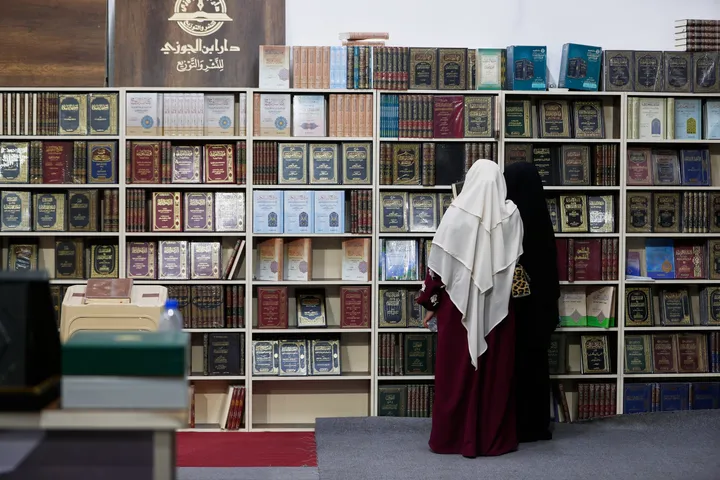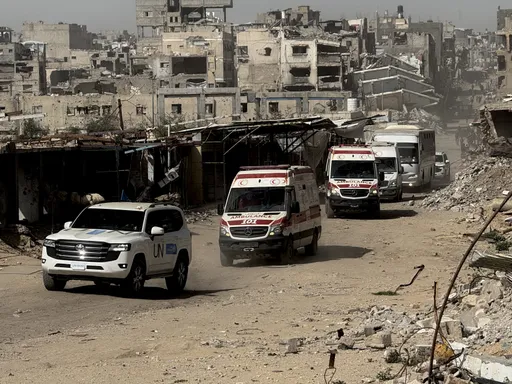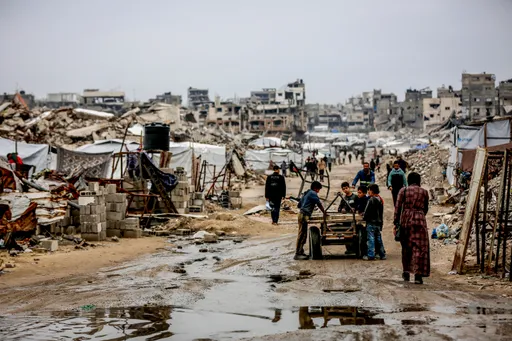The Trump administration has made it a priority to erect a wall between the US and Mexico to keep out migrants, something the president had promised during his campaign.
US President Donald Trump has called illegal immigration “an invasion of our country” and signed an executive order in February to receive more funding for the border wall than what the US Congress had approved. Congress had approved $1.37 billion to build 55 miles of new border barriers, rather than Trump’s request of $5.7 billion to build over 200 miles.
The Trump administration has controversially, at the Mexican border, separated parents from their children forcibly, taking the children under custody in detention centres.
Detention policies existed before Trump’s time; however, for example, during President Barack Obama’s time, the goal was to deport migrants who had committed crimes. During the Trump administration, on the other hand, the focus has been on deporting migrants described as “illegal aliens” regardless of whether or not they have committed a crime.
Trump has said that the separation of migrant families at the border is meant to act as a deterrent to potential migrants from Central America and Mexico who want to settle in the US.
Under the Trump administration, nearly 2,000 children were separated from their parents between mid-April and the end of May. Democrats and some in Trump’s own Republican Party have severely criticised the practice of placing children in detention centres and their parents in jail.
The Trump administration has most recently argued the definition of the Flores Agreement of 1997 which reads "Following arrest, the INS [Immigration and Naturalization Service] shall hold minors in facilities that are safe and sanitary and that are consistent with the INS's concern for the particular vulnerability of minors."
As Sarah Fabian, a Justice Department lawyer argued in front of three judges to reverse the Flores Agreement, the judges were incredulous.
"You're really going to stand up and tell us that being able to sleep isn't a question of safe and sanitary conditions?" Judge Marsha Berzon asked.
Commenting on Fabian’s argument that detained children don’t need toothpaste and soap to be “safe and sanitary,”,American journalist and novelist Michael Scott Moore who was a captive in Somalia, had some words to say. David Rohde, the executive editor of the New Yorker website and a former Taliban prisoner, added his two cents in response.
The Trump administration has also threatened to deport migrants who have been living in the US for years and have built a life there, claiming they are illegally in the country and have no right to be there.
Many in the US, and globally, have been shocked by the treatment of migrants, speaking out in support of separated families.
One such person is George Takei, the famed Japanese-American actor who was once interned as a child with his parents in a camp in the US during World War II.
Takei was referring to the Japanese internment camps that took place during the Franklin D. Roosevelt administration between 1942 and 1945. Roosevelt’s executive order is said to have affected the lives of about 117,000 people—the majority of whom were American citizens.
Many others, including Democratic representative Alexandra Ocasio-Cortez, has called the current camps “concentration camps”. The term has sparked a debate in the US, with sides arguing whether the possible re-opening of a Japanese internment camp to hold migrant children would merit the label “concentration camp”.
“Applying the term ‘concentration camp’ to the indefinite detention without trial of thousands of civilians in inhumane conditions — under armed guard and without adequate provisions or medical care — is not just appropriate, it’s necessary,” Jewish historian Anna Lind-Guzik argued.
“Still, no random executions, no torture and no electrified fencing. Atrocious, but not a concentration camp,” Washington Post columnist Richard Cohen countered, as did the American Holocaust Museum.
New Jersey senator and Democratic presidential candidate for 2020 Cory Booker also tweeted about the atrocious conditions children are subjected to in detention centres, or whatever else they may be called.
On Saturday, Trump seemed to be seeking consensus between the administration and his critics, but his tweet ended with the threat of deportations if no agreement could be reached.
“We are failing our immigrant communities on a daily basis. In detention centers throughout the country, we are violating human rights,” the largest immigration legal services non-profit in Texas Raices says. “On the border, we are separating families. Throughout the interior, we are arresting and deporting people when they get a busted tail light or go to a doctor.”
Calling the Trump administration’s immigration regime “a constant betrayal of our values as a nation”, Raices has called on US citizens to have compassion for immigrants.
Georgetown Law Center on Privacy & Technology Founding Director Alvaro Bedoya has chain tweeted about the children who have died in US custody, asking his followers “Don't forget these children. Share their stories. Demand an end to this hell.”























